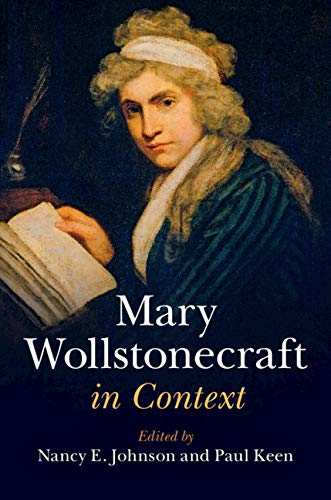- Contributor
- Editors
- Publisher
- Year
- ISBN
- Language
- Andrew McKendry
- Nancy E. Johnson and Paul Keen
- Cambridge University Press
- 2020
- 9781108416993
- English
Mary Wollstonecraft (1759–1797) was one of the most influential and controversial women of her age. No writer, except perhaps her political foe, Edmund Burke, and her fellow reformer, Thomas Paine, inspired more intense reactions. In her brief literary career before her untimely death in 1797, Wollstonecraft achieved remarkable success in an unusually wide range of genres: from education tracts and political polemics, to novels and travel writing. Just as impressive as her expansive range was the profound evolution of her thinking in the decade when she flourished as an author. In this collection of essays, leading international scholars reveal the intricate biographical, critical, cultural, and historical context crucial for understanding Mary Wollstonecraft’s oeuvre. Chapters on British radicalism and conservatism, French philosophes and English Dissenters, constitutional law and domestic law, sentimental literature, eighteenth-century periodicals and more elucidate Wollstonecraft’s social and political thought, historical writings, moral tales for children, and novels.
McKendry’s chapter explores Mary Wollstonecraft’s relationship to English Dissent—both to the intellectual tradition and to prominent Dissenters of her own day, including Joseph Priestley and Richard Price. Dissenting values, particularly “free inquiry” and religious liberty, informed her understanding of independence and rights in important ways; the hard-fought prerogatives of conscience not only empower her characters to interrogate the institution of marriage, but also impute a religious significance to women’s education. While Wollstonecraft’s priorities occasionally set her at odds with Dissent on certain topics, such as religious education and domesticity, one of the most conspicuous filiations—the influence of “Rational Dissent” on her ‘rationalism’—is less straightforward than it may appear; English Dissent also comprehended an affective tradition, one that gave shape to Wollstonecraft’s enduring attachment to domestic, social, and spiritual feeling.
- Reviews


